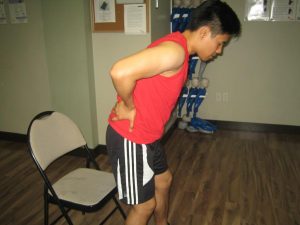Psoas syndrome is defined as a condition that causes refractory low back pain along with other symptoms. It is considered uncommon and often misdiagnosed. It arises once the psoas muscle is damaged. This long muscle is in the lower lumbar region of the spine and radiates via the pelvis to the femur. The muscle is responsible for flexing the hip joint and raising the upper leg towards the body while walking.
Who are at risk?
Any individual can end up with the condition, but runners, athletes and those who engage in plyometric jumping exercises face a higher risk due to the nature of their activities.
What are the indications?

It is important to note that psoas syndrome can trigger various symptoms such as:
- Low back pain
- Pelvic and groin pain
- Pain or discomfort in the lumbosacral region while sitting or when changing positions from rising while seated to standing
- Buttock pain
- Difficulty and/or pain while attempting to stand in an erect posture
- Pain that radiates down the leg
- Shuffling or limping stride while walking
Management of psoas syndrome
The syndrome is ideally managed with exercises. These exercises are demonstrated by the doctor or physical therapist and can be done by the individual at home.
Generally, these exercises include passive and active hip joint, spine and psoas muscle stretching and manipulation. The exercises done at home include stretching and low-impact dynamic routines that aims on stretching and strengthening the psoas muscle as well as allow the body to fix the damage.
Additional treatment options might include ultrasound, osteopathic manipulative treatment and rarely injections to the muscle or associated tendons.
